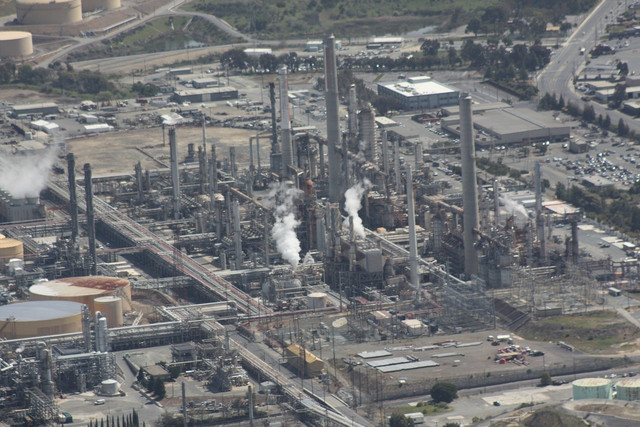Compressed natural gas has been hailed as a solution to meeting carbon emissions reduction targets, but is it really sustainable? Here are the biggest pros and cons.
Compressed natural gas (CNG) is natural gas stored under high pressure. It is predominantly composed of methane. It is odorless, clear, non-corrosive and takes up less space than regular natural gas. CNG can power vehicles and is cheaper and more efficient than diesel or gasoline. When it is combined with air, fed into a vehicle’s combustion chamber and ignited, it produces power to make that vehicle drive.
A shift toward compressed natural gas could reduce reliance on imported gasoline and improve energy security. That’s a big issue, considering the US produces almost all the natural gas we use. Below, Utopia investigates how sustainable this natural gas is and what its potential is for the future.
Compressed Natural Gas: The Basics

Natural gas is a fossil fuel that takes millions of years to form from the action of pressure and heat against dead organic materials. This means it isn’t renewable. It is extracted from the earth by drilling or fracking, often at the same time that crude oil is extracted. After it is collected, the gas is separated from other liquids like water and crude oil and processed to meet industry specifications.
Currently, the US uses CNG in commercial vehicles like buses, garbage trucks and heavy-duty trucks. It is stored in pressurized tanks, making it suitable for larger vehicles’ large tank size. A converter kit makes it possible to convert regular gasoline and diesel cars to run on CNG, making it an exciting option for the future.
- Read our article Everything You Need to Know About Fossil Fuels to bone up on this controversial topic.
Pros of Compressed Natural Gas
Compressed natural gas has been hailed as a solution to cutting carbon emissions. Let’s take a look at whether this is true and learn about the pros.
Advantages of CNG:
- It combusts cleaner than gasoline or diesel and omits lower levels of greenhouse gases like carbon dioxide and nitrous oxide.
- It is cheaper than conventional gasoline and diesel, and its market price fluctuates less.
- It is also cleaner for engines and makes them more efficient.
- Most cars can be converted to use CNG with a conversion kit. These kits let drivers switch between compressed natural gas and gasoline — a hybrid model — providing longer mileage and fewer worries about running out of gas.
Cons of Compressed Natural Gas
So are there any negative effects of using compressed natural gas? Let’s find out.
Disadvantages of CNG:
- Storage tanks for compressed natural gas are bulky enough to take up an average-sized car’s trunk space. They are also heavy, which adds extra weight and affects the vehicle’s performance.
- Finding somewhere to fuel up with CNG may be difficult, as filling stations are not widely available. So, long journeys may be challenging.
- Although most cars can be converted to run on compressed natural gas, the initial conversion costs can be steep, putting this option out of reach for many.
- Vehicles using CNG are generally less powerful than their gasoline or diesel-powered counterparts.
What Is the Future of CNG?



As we’ve seen, compressed natural gas significantly reduces a vehicle’s emissions. That’s great news for climate change; however, don’t forget that CNG is composed of methane, a greenhouse gas. Also, gasoline vehicles converted to compressed natural gas are less powerful and storing the gas can be cumbersome.
Although CNG isn’t sustainable, if more people convert their vehicles to run on CNG, it may help to reduce global greenhouse gas emissions. That said, building vehicles that run on it would be more efficient than converting existing models.
Read more:
- How to Save Money on Gas in 2022 & Do Something for the Environment
- How Do Electric Cars Work? The Inner Workings Explained
- LA Public Transportation: How to Use It & 6 Cool Places to Go
Do you like this post?







